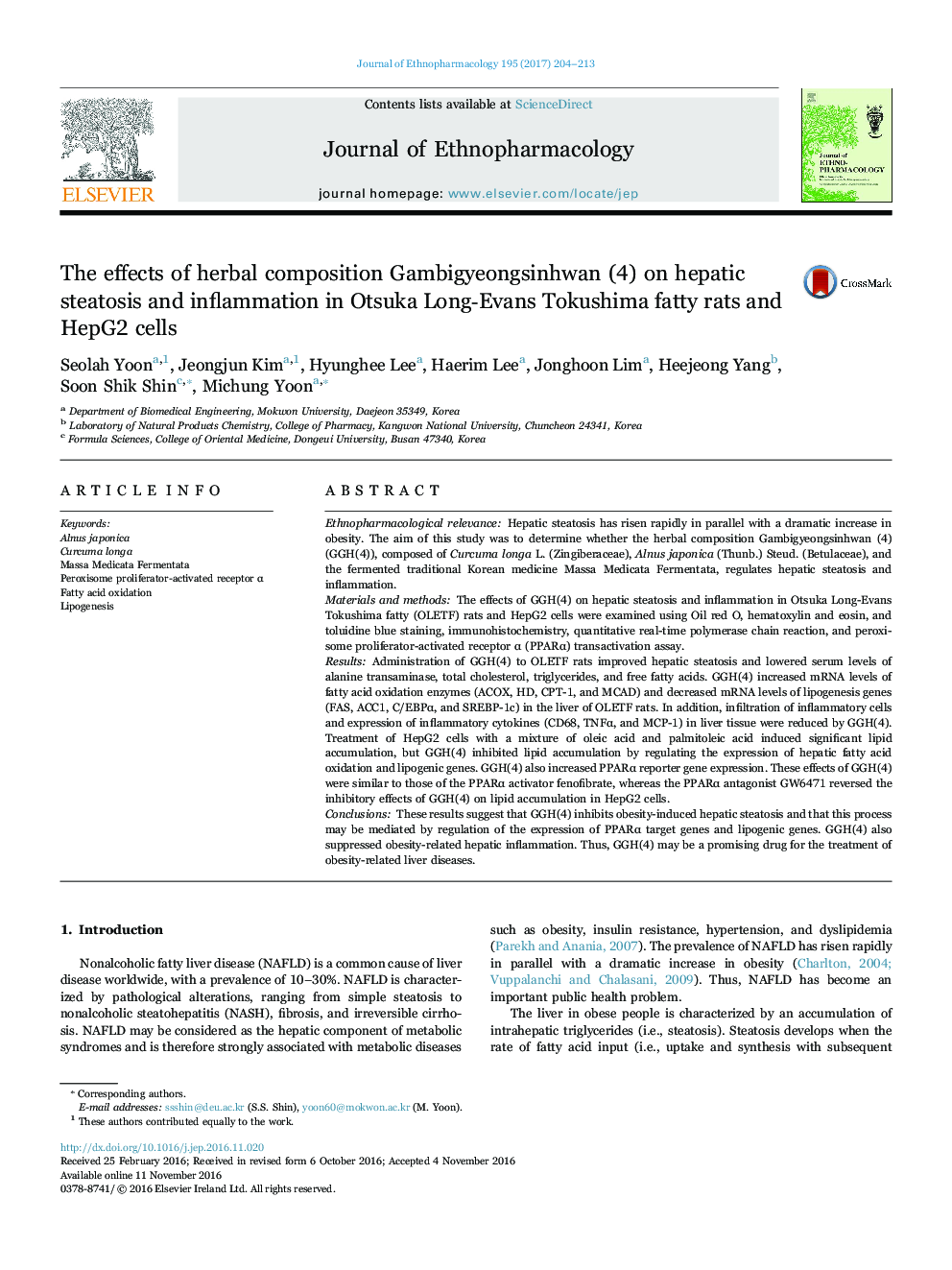| Article ID | Journal | Published Year | Pages | File Type |
|---|---|---|---|---|
| 5556385 | Journal of Ethnopharmacology | 2017 | 10 Pages |
Ethnopharmacological relevanceHepatic steatosis has risen rapidly in parallel with a dramatic increase in obesity. The aim of this study was to determine whether the herbal composition Gambigyeongsinhwan (4) (GGH(4)), composed of Curcuma longa L. (Zingiberaceae), Alnus japonica (Thunb.) Steud. (Betulaceae), and the fermented traditional Korean medicine Massa Medicata Fermentata, regulates hepatic steatosis and inflammation.Materials and methodsThe effects of GGH(4) on hepatic steatosis and inflammation in Otsuka Long-Evans Tokushima fatty (OLETF) rats and HepG2 cells were examined using Oil red O, hematoxylin and eosin, and toluidine blue staining, immunohistochemistry, quantitative real-time polymerase chain reaction, and peroxisome proliferator-activated receptor α (PPARα) transactivation assay.ResultsAdministration of GGH(4) to OLETF rats improved hepatic steatosis and lowered serum levels of alanine transaminase, total cholesterol, triglycerides, and free fatty acids. GGH(4) increased mRNA levels of fatty acid oxidation enzymes (ACOX, HD, CPT-1, and MCAD) and decreased mRNA levels of lipogenesis genes (FAS, ACC1, C/EBPα, and SREBP-1c) in the liver of OLETF rats. In addition, infiltration of inflammatory cells and expression of inflammatory cytokines (CD68, TNFα, and MCP-1) in liver tissue were reduced by GGH(4). Treatment of HepG2 cells with a mixture of oleic acid and palmitoleic acid induced significant lipid accumulation, but GGH(4) inhibited lipid accumulation by regulating the expression of hepatic fatty acid oxidation and lipogenic genes. GGH(4) also increased PPARα reporter gene expression. These effects of GGH(4) were similar to those of the PPARα activator fenofibrate, whereas the PPARα antagonist GW6471 reversed the inhibitory effects of GGH(4) on lipid accumulation in HepG2 cells.ConclusionsThese results suggest that GGH(4) inhibits obesity-induced hepatic steatosis and that this process may be mediated by regulation of the expression of PPARα target genes and lipogenic genes. GGH(4) also suppressed obesity-related hepatic inflammation. Thus, GGH(4) may be a promising drug for the treatment of obesity-related liver diseases.
Graphical abstractDownload high-res image (257KB)Download full-size image
